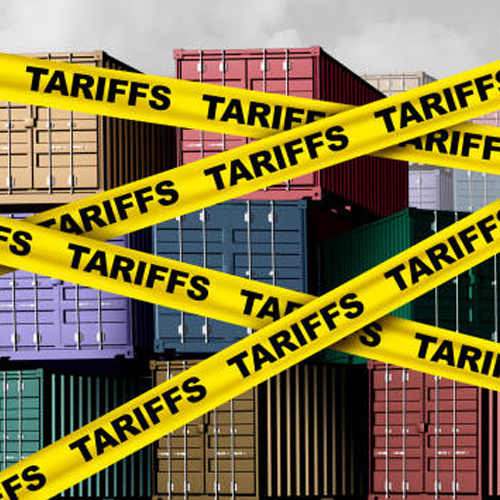TRUMP IMPOSED TARIFFS BLOCKED BY US COURTS WHO SAY HE EXCEEDED AUTHORITY
TRUMP IMPOSED TARIFFS BLOCKED BY US COURTS WHO SAY HE EXCEEDED AUTHORITY

WASHINGTON DC - A federal trade court delivered a major blow to President Donald Trump's trade strategy Wednesday, blocking most of his sweeping tariff orders in a ruling that found the president overstepped his constitutional authority.
The Court of International Trade issued a permanent injunction against Trump's across-the-board import duties, declaring that the U.S. Constitution grants Congress exclusive power to regulate international commerce—authority that cannot be overridden by presidential emergency powers.
"The court does not pass upon the wisdom or likely effectiveness of the President's use of tariffs as leverage," wrote the three-judge panel. "That use is impermissible not because it is unwise or ineffective, but because [federal law] does not allow it."

Market Response and Immediate Impact
Financial markets responded positively to the decision. The U.S. dollar surged against major currencies including the euro, yen, and Swiss franc, while Wall Street futures climbed and Asian equities jumped following the announcement.
The court ordered the Trump administration to issue new orders reflecting the injunction within 10 days. The administration immediately filed a notice of appeal and challenged the court's authority to make such a ruling.

Legal Foundation of the Ruling
The court invalidated all tariff orders imposed since January that relied on the International Emergency Economic Powers Act (IEEPA), legislation designed to address "unusual and extraordinary" threats during national emergencies. However, the ruling did not affect industry-specific tariffs on automobiles, steel, and aluminum, which were implemented under different statutory authority.
The Manhattan-based Court of International Trade's decision can be appealed to the U.S. Court of Appeals for the Federal Circuit and potentially to the Supreme Court.
Strategic Implications
The ruling creates significant uncertainty for Trump's trade negotiations with the European Union, China, and other major trading partners. Analysts noted that while the decision represents a setback for the administration's tariff strategy, it may not fundamentally alter outcomes for most major U.S. trading partners.
"This ruling represents a setback for the administration's tariff plans and increases uncertainty but might not change the final outcome for most major U.S. trading partners," wrote analyst Alec Phillips.
Trump had promoted tariffs as a means to restore U.S. manufacturing jobs and reduce the nation's $1.2 trillion goods trade deficit—key campaign promises. Without immediate tariff leverage, the administration will need to develop alternative negotiation strategies or adopt a more gradual approach to trade discussions.
International Reaction
Initial responses from Asian policymakers were measured. Japan's economy minister indicated he would review the ruling's details, while South Korea's central bank noted that effective tariff rates on Korean exports would drop from 13.3% to 9.7% under the decision.
Hong Kong's financial secretary suggested the court decision would "at least bring President Trump to reason."
Legal Challenges
The ruling stems from two lawsuits: one filed by the Liberty Justice Center representing five small U.S. importers, and another brought by 12 U.S. states. The affected businesses range from a New York wine and spirits importer to a Virginia-based manufacturer of educational materials and musical instruments.
"There is no question here of narrowly tailored relief; if the challenged Tariff Orders are unlawful as to Plaintiffs they are unlawful as to all," the judges concluded.
Oregon Attorney General Dan Rayfield, who led the states' legal challenge, called Trump's tariffs "unlawful, reckless and economically devastating."
"This ruling reaffirms that our laws matter, and that trade decisions can't be made on the president's whim," Rayfield stated.
At least five additional legal challenges to the tariffs remain pending in federal courts.
Background and Defense
Trump had claimed broad tariff authority under IEEPA, becoming the first U.S. president to use the law—historically employed for sanctions and asset freezes against hostile nations—to impose trade duties.
In April, Trump declared the trade deficit a national emergency justifying a baseline 10% tariff on all imports, with higher rates for countries maintaining the largest trade imbalances with the United States, particularly China. While country-specific rates were paused for 90 days, the baseline duty remained in effect for most nations.
The Justice Department had argued the lawsuits should be dismissed, contending that plaintiffs hadn't been harmed by unpaid tariffs and that only Congress could challenge presidential national emergency declarations under IEEPA.
The administration temporarily reduced the steepest China tariffs on May 12 while pursuing longer-term trade negotiations, with both countries agreeing to mutual tariff cuts for at least 90 days.
Related News .
Stay updated with the most important events.




